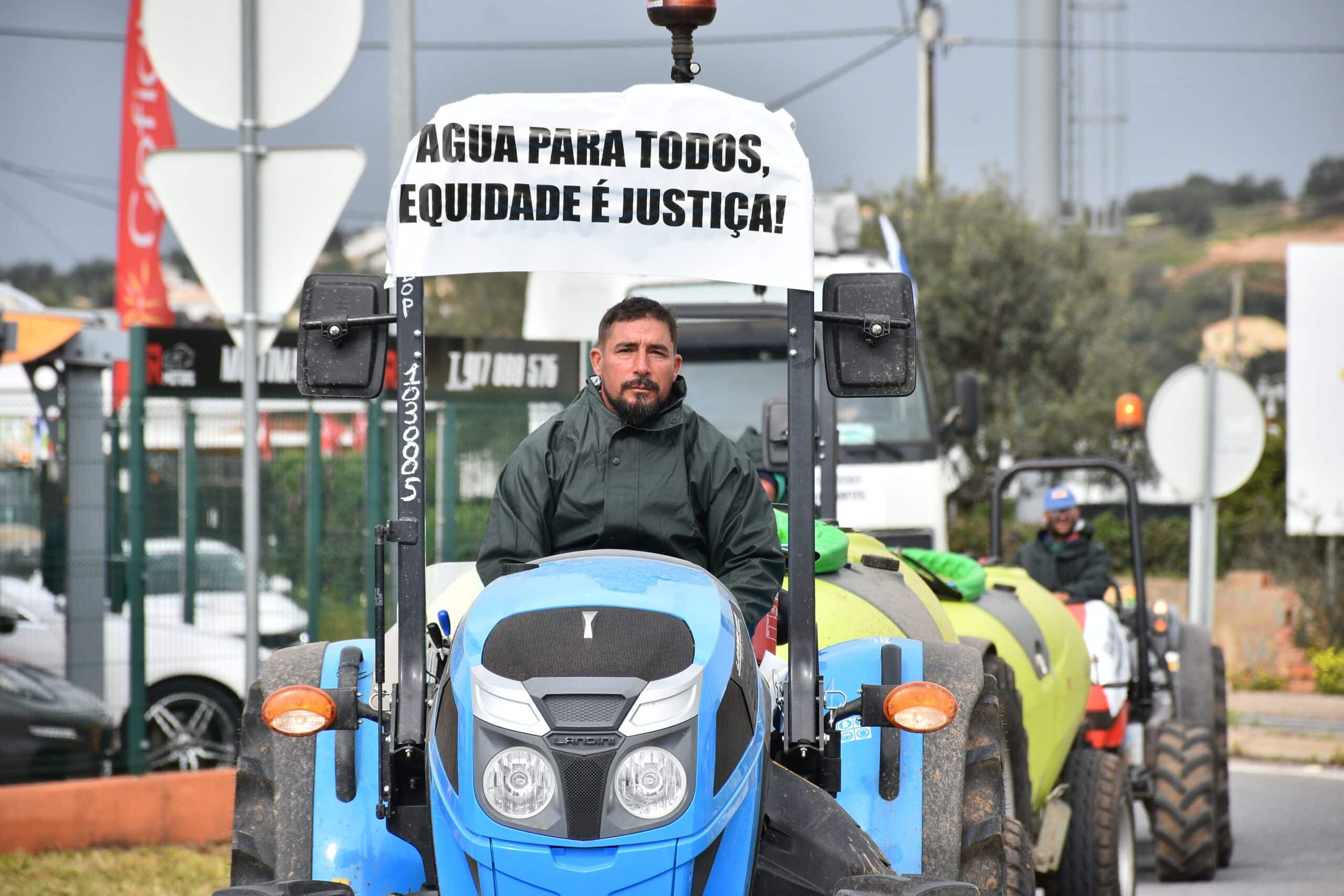A document containing all their demands was delivered to CCDR Algarve in Faro
Around 600 farmers took part today (March 8) in a slow march on the EN125 road against the “unfair” water restrictions imposed on the agricultural sector by the government.

The farmers started gathering at the Boliqueime football pitch as early as 6am, haiving then carried out a slow march on the EN125 all morning long which brought traffic to a snail’s pace between Boliqueime and Almancil.
Around 300 agricultural machines were used in the protest, with several tractors holding signs reading “Water is life, agriculture is food”, “We only realise the value of water once the fountain has dried up” or “Our trees need water to bear fruit”.

At the end of the protest, a delegation from the recently-created Algarve Commission for Hydro-agricultural Sustainability travelled to the headquarters of the Algarve Regional Development and Coordination Commission (CCDR) to deliver a document with all of the measures that the farmers believe should be implemented to combat the region’s extreme drought.
“We want the next government to listen to us and to have a strategic vision of water policy at the national level and specifically in the Algarve, so that there is fair and equal treatment for all sectors,” Macário Correia, president of the Eastern Algarve Irrigation Association, Macário Correia, told Lusa.

CHSA’s demands call for an increase in water storage capacity in the Algarve, equitable cuts in water usage, and the restructuring of the Ministry of Agriculture, with the reinstatement of regional directorates of Agriculture and Fishing.
Algarve farmer Duarte Miguel, driving a tractor in the long line of vehicles that formed on the EN125, said he was protesting because in the north of Portugal there are “full dams letting water run to the sea”, and because the government “is doing nothing to bring the excess water to the south of the country.”

“We lack water and I have to defend my work. Without water, there will be no work in agriculture in the Algarve,” added José Alberto, who works in a plant nursery, with the ornamental plants sector among those most affected by the drought.
The farmers want to make it clear that the next Prime Minister of Portugal will have to look at this subject very seriously.
“The government that emerges from these elections has to look at this and a strategy has to be defined. People need to know what they can expect,” said another agricultural leader leading the protest, José Oliveira, from the AlgarOrange Association of Citrus Operators.

The commission, which brings together more than 1,000 organisations and farmers from the Algarve, argues that, as the rainfall in recent weeks has exceeded the government’s estimates, any more than the estimated amount should be “used to alleviate the cuts imposed on agriculture”.

To tackle the region’s drought situation, the government has approved a set of measures to restrict consumption, namely a 15% reduction in the urban sector, including tourism, and a 25% reduction in agriculture.
In addition to these measures, there are others, such as combating losses in the supply networks, using treated water to irrigate green spaces, streets and golf courses, and suspending the granting of water resource use licences.
The government has already acknowledged raising the level of restrictions and declaring a state of environmental emergency or calamity if the current measures are insufficient to deal with the region’s water shortage.
Updated at 4.46pm
Source: LUSA




















